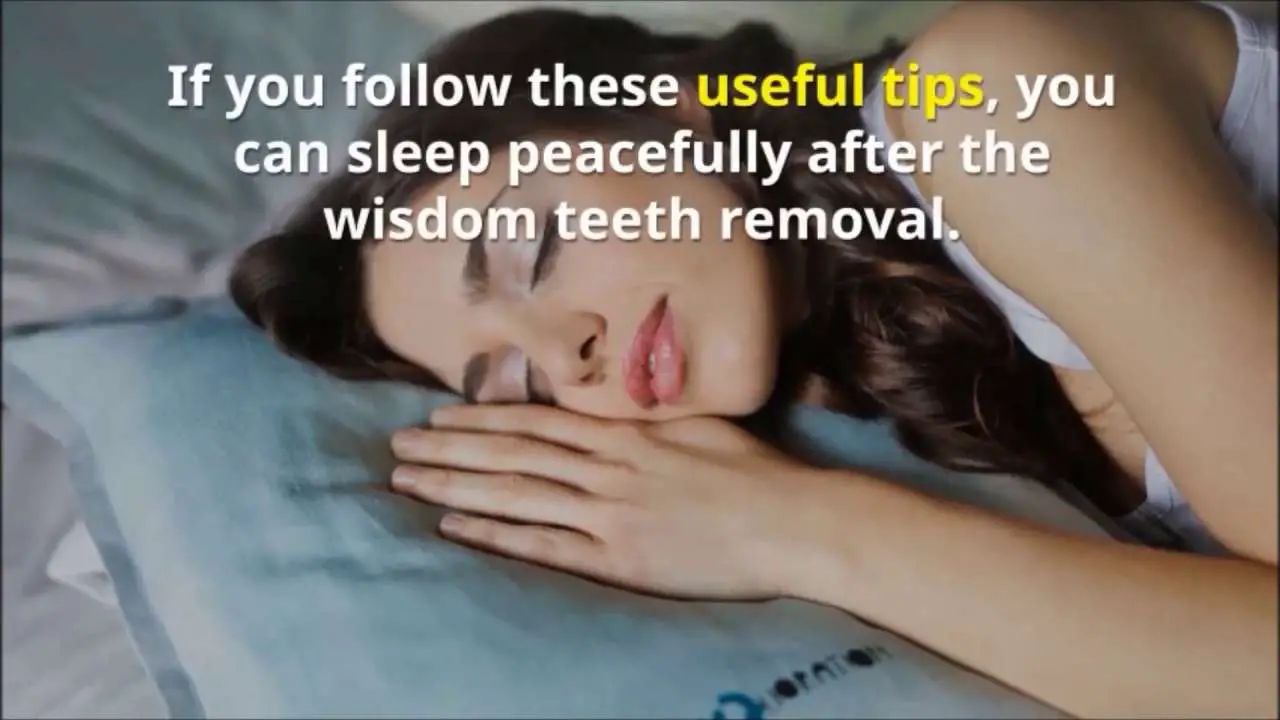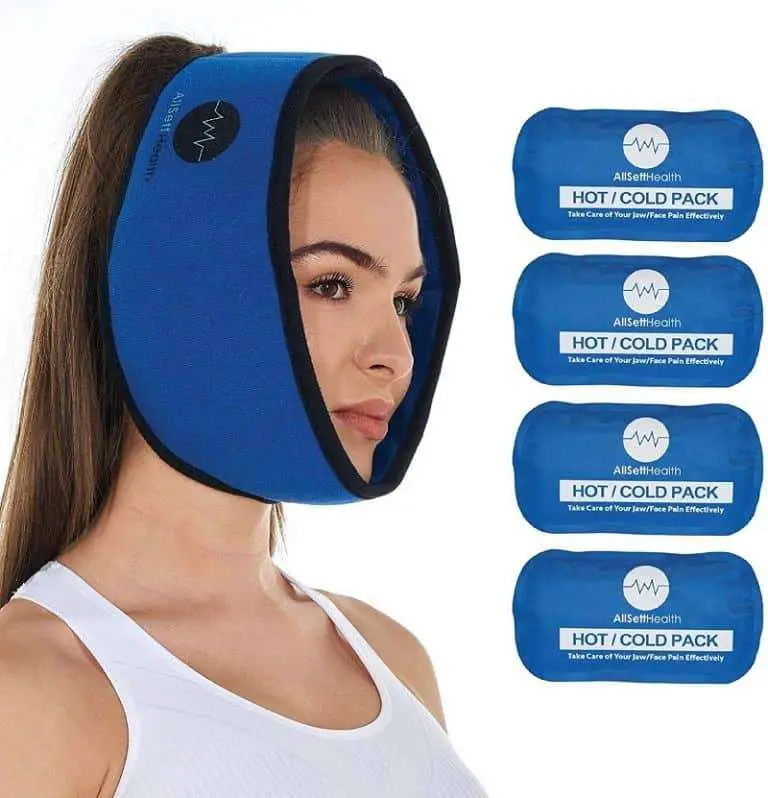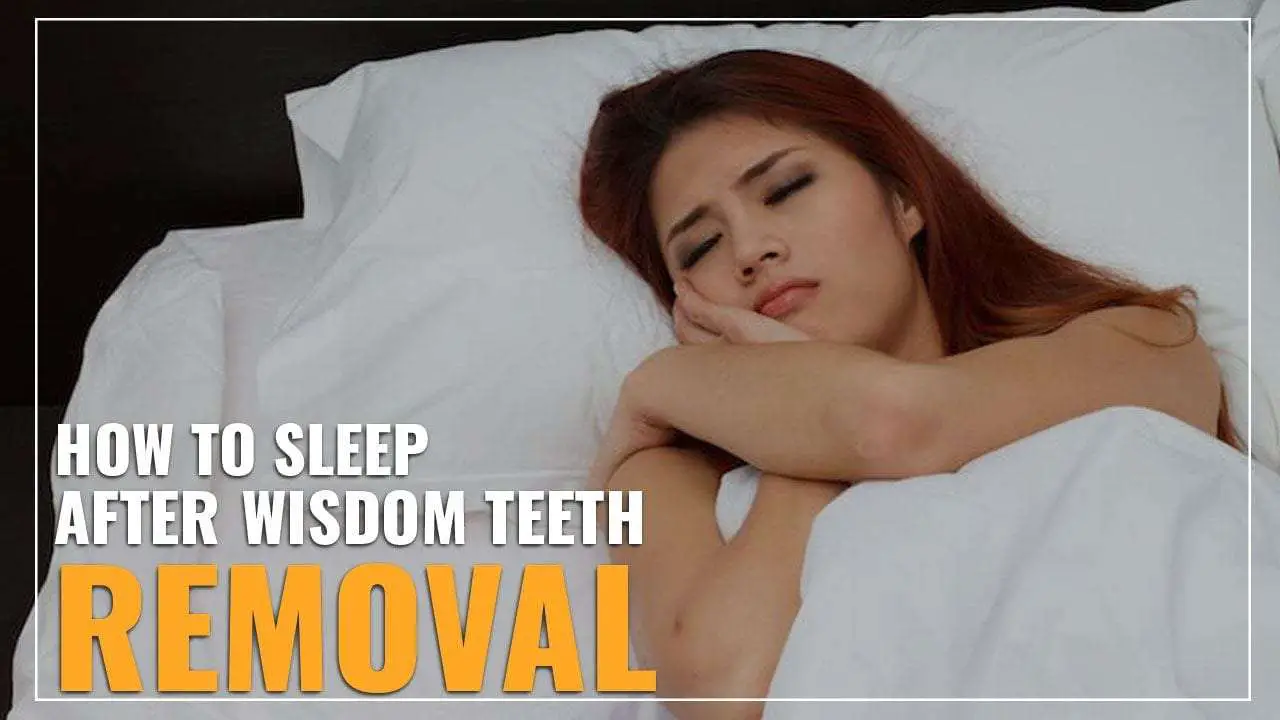Should You Sleep With Gauze After Wisdom Teeth Removal
The purpose of gauze is to help your body clot the wound by applying light pressure against your wound. You should never sleep with gauze in your mouth because its a potential choking hazard.
Its also critical to take care not to fall asleep when youre lying down with gauze in your mouth, especially if youre taking medications that may cause drowsiness.
It can take weeks to fully heal from a wisdom tooth extraction, but taking good care of your wounds can help you minimize your recovery time. Some morning habits that may help include:
- taking any medication as prescribed by your doctor
How To Sleep After Wisdom Tooth Removal
If youre wondering how to sleep after wisdom tooth removal, weve got you covered.
All of us have heard the horror stories associated with the removal of wisdom teeth.
It is common knowledge that the road to recovery following a wisdom tooth extraction is a long and painful one.
So what are wisdom teeth and why exactly is the recovery process something that is feared?
Wisdom teeth are also known as the third molars.
They are the last molar teeth to develop which usually grow at the very back of the upper and lower jaw bones, one at each back corner of the mouth.
They usually grow between the age of 18 and 25.
When wisdom teeth erupt, there are two possibilities.
Either they grow out completely and nothing eventful happens or wisdom teeth are unable to completely erupt and become impacted.
When such a situation occurs, surgical intervention becomes a must.
Why?
When a wisdom tooth is impacted and tries to erupt into the mouth, the flap of gum on top of it can become infected and swollen.
This can cause it to become sore and painful. If this is not treated on time it can cause a huge infection.
Dos And Dont After Wisdom Teeth Removal
Things you have to do after the wisdom tooth removal:
- Raise your head. This will assist in reducing the amount of edema you feel.
- For the first 24 to 48 hours, ice your face. Icing will assist in relieving your discomfort and decreasing swelling.
- Bite on the gauze to halt the bleeding. You will no longer need to bite down on the gauze after the bleeding has subsided.
- Stick to a liquid and soft food diet most of the time. As you begin to recover, gradually shift to more challenging meals.
- Open and close your mouth softly to do jaw exercises.
- Drink plenty of fluids however, not through a straw.
- Take your pain medicine exactly as directed. If you miss a dosage, it will be more difficult to catch up and relieve pain later.
- Brush your teeth starting the second day following your operation, but avoid brushing the extraction sites of your wisdom teeth.
- Applying hot water to the extraction area of your wisdom teeth may be relaxing and help recovery.
- If you get a fever which might be a symptom of infection, or have discomfort or swelling that does not go away after following the above instructions, contact your dentist immediately.
Things you shouldnt do after wisdom tooth removal:
- Avoiding sucking and spitting using straws aids in the maintenance of the blood clot that develops over the extraction point of the wisdom teeth. If the lump gets removed, you may have further bleeding, discomfort, and a condition known as dry sockets.
Read Also: Manifest Weight Loss While You Sleep
How To Sleep After Wisdom Teeth Pulled
If the above two ways have not worked in your favor and sleep still seems like a faraway dream, then you should try elevating your head for the next few nights. You can elevate your head by placing a couple of pillows under your head to support your head. You can then lean back and relax. Elevating your head will cause no sudden rush of blood into your extraction area thus not causing extra pain. How to sleep after wisdom teeth removal.
Ice Your Cheek For The First 36 Hours

After wisdom tooth extraction, apply an ice pack to your cheeks on the side where your wisdom teeth were removed. Ice for 20 minutes on, 20 minutes off, as much as you can during the first 36 hours after surgery.
Cold compresses can help reduce swelling and inflammation even before you see outward signs of swelling. By icing consistently for the first day and a half, you may reduce pain and swelling for the rest of your recovery time.
You can also purchase a head wrap ice pack for a hands-free way to ice your jaw. These are particularly useful if you had extractions on both sides of your mouth.
A word of caution, though: Dont apply heat to this area until around day 3. Heat can increase blood flow to the area which, as mentioned, will increase pain and swelling.
Recommended Reading: Sleep Number 360 King Size Cost
What To Do After Wisdom Teeth Removal
By: Redmond Signature Dentistry
Having a tooth extracted can be a stressful experience. But, the recovery doesnt have to be! There are some practical steps you can take to make your recovery faster and more comfortable.
Just follow these dentist-approved tips, and youll be up and smiling again in no time.
What Is The Average Recovery Time For Wisdom Teeth Removal
Also Check: Sleep Ez Organic Latex Mattress Reviews
What Are The Most Painful Days After Wisdom Teeth Removal
Following tooth extraction, the following should be the normal healing process: Most people report that the first two days following wisdom teeth removal surgery are the most unpleasant, and that there is usually considerable swelling. The third day should be more comfortable, and you should be able to begin eating more substantial meals, despite the fact that you are still swollen.
Can You Sleep If The Tooth Extraction Is Still Bleeding
It is not unusual to have sleeping issues after a tooth extraction, and that can last one or 2 days.
It is certainly possible to fall asleep while your teeth are still bleeding. However, we recommend using an old pillow or cushion as you will most likely get your favorite ones stained.
In addition, you should also remove the gauze from your mouth before going to sleep.
Furthermore, and as well discover more of it later, it is important to sleep with your head elevated for the first 2 to 3 nights.
Also Check: Sleep Number 360 Queen Price
Contact Us For More Details About Dental Care In Chester Springs Pa
Tooth extraction can be a necessary dental procedure, and it will be more helpful if you use the proper sleeping habits afterward. You can talk with us at Byers Station Dental in Chester Springs, PA if you have further questions about how well the extraction can work and what you should do afterward. Our full-service family practice is available for patients throughout the Chester Springs area, including in nearby spots like Eagle, Exton, and Ludwigs Corner. Contact us today to schedule a consultation with Dr. Rachel Moon for your dental care needs.
Call Your Dentist If You Have Severe Symptoms
If your medication cannot control your pain, the Mayo Clinic urges you to call your dentist immediately. Also, if you experience excessive swelling or bleeding, this may be a sign of infection, and you should call your dentist right away.
Knowing how to sleep after wisdom teeth removal is imperative for the healing process. Make sure that you sleep in the correct position with supervision, take your medication properly and treat your mouth gently. If something goes wrong and you suspect infection, or if you’re unable to sleep due to pain, contact your dentist. They can examine the surgery site and provide additional guidance on how to get quality sleep after your procedure.
Recommended Reading: Bedding For Sleep Number Beds
Can I Sleep On My Side After A Tooth Extraction
Some people are naturally side sleepers who prefer this position when sleeping. For these men and women, it can be tough to adjust to sleeping on ones back or in any other position. However, it is often necessary for someone to shift their sleeping position following a medical procedure, like a tooth extraction.
Dr. Rachel Moon and the team at Byers Station Dental in Chester Springs, PA can help you with tooth extraction, but youll also need to put in your due diligence following the procedure. Here are a few points to see when looking at how youll need to sleep after this dental procedure.
Sleeping On Your Back Is Necessary

As tough as it can be for some people to manage, they will need to sleep on their backs following tooth extraction. Sleeping on the back is necessary for ensuring any materials used to control the bleeding in the extraction site will not shift out of place. Keeping the head to the side while sleeping could cause the protective materials to shift a small bit, making it harder for the teeth to stay healthy.
Youll need to sleep on your back for at least a week after the initial procedure. The timing should be enough to allow the extraction site to recover and prevent potential damage in Chester Springs, Byers, Ludwigs Corner, Eagle, Lionville, or Exton, PA.
Read Also: Sleep Number Mattress On A Platform Bed
Getting Ready For Bed
Sleeping Position And Preparing For Bed
Depending on the severity of your reaction to the procedure, you may find the best option is to try and sleep upright for the first night.
Sleeping upright will help any fluids and swelling dissipate. Furthermore, it is imperative to remove any gauze from the dentists mouth to help prevent bleeding.
If you are ready to sleep, remove anything that could be a choking hazard.
Read Also: Where Can I Buy Pure Sleep
How Long Before I Recover
There is no set time, but as a rule of thumb, recovery takes a while, but you should be pain-free within three to four days.
We are all different and heal at different rates. If you are young, then expect to be back to your routine quickly. If you are a little older, the process of healing will take longer.
If you have persistent pain, check back in with your dentist, there may be something that needs checking, or an infection may be setting in.
Your dentist will have the skills to rectify the situation and get you back to normal as quickly as possible.
Is It Ok To Sleep On Your Side After Wisdom Teeth Removal
It is possible that the tooth extraction site will ooze during the initial healing process. This is why sleeping on your side is best for the first night, at least. Additionally, if you lie flat on your back, you may experience swelling as well. You may experience more pain and be forced to rest harder if you do that.
Don’t Miss: Sit And Sleep Phone Number
What To Avoid When Sleeping After Wisdom Teeth Removal
When healing from a wisdom tooth extraction, its important to take care not to dislodge the blood clots forming in your wounds, particularly in the first 24 hours. Dislodging or improper formation of a blood clot can cause a condition called dry socket. This is one of the most common complications of wisdom tooth surgery and may occur on days 3 to 5.
To minimize your risk of complications, its a good idea to avoid the following habits:
- Sleeping flat on your back. The RICE protocol of rest, ice, compression, and elevation is commonly recommended for promoting injury recovery. Use an extra pillow or two to elevate and support your head when sleeping.
- Brushing around your wounds. Its a good idea to avoid brushing around the surgery site for at least the first 24 hours to avoid dislodging your blood clot.
- Staying up late. Its important to get plenty of rest to give your body the time it needs to heal itself.
- Drinking alcohol or smoking. Alcohol and tobacco can both interfere with your bodys ability to heal itself. Its a good idea to avoid these activities for at least 24 hours after your surgery, and ideally until youre fully healed.
How Long To Sleep Elevated After Wisdom Teeth Removal
How long should you sleep elevated after wisdom teeth removal? That really depends on several factors.
In general, and regardless of the type of oral surgery, sleeping elevated for the first 2 to 3 nights is a good idea. In fact, it will help drain any fluid from the removal area.
In comparison with sleeping flat, where the swelling will most likely increase and where it will be more painful, sleeping with your head elevated will allow you to remain pain-free or almost.
Don’t Miss: Sleep Number Bed Split King Size
Wisdom Teeth Removal Is A Surgical Procedure That Requires Special Post
Part of that care is getting enough sleep so that the healing process can begin. A patient should not jump back to normal activity as it may cause further bleeding or throbbing pain in the area where the tooth was removed. Following the tips mentioned above can help make this oral surgery easier to bear especially during the healing process. Any unusual symptoms post-op or fevers that develop after surgery should be reported to the surgeon. A medical professional can recommend specific medicines to reduce the fever and relieve the pain. Recovery depends upon the complexity of the surgery, but plan on at least one to two days of decreased activity.
How Should I Sleep After Wisdom Tooth Removal

To get a good nights sleep after your wisdom teeth extraction, make sure you follow the aftercare instructions provided by your oral surgeon carefully. This will ensure you get to sleep as soon as possible. To recover from wisdom teeth extraction make sure to follow the instructions carefully and do not skip any special instructions if you have been provided with any. Here are some of the most common aftercare guidelines. How to sleep after wisdom teeth removal.
Apply ice and heat to the extraction area to decrease the pain. Use the pack before you go to sleep.
Make sure to take it easy for the next few days. Strenuous physical activity is to be avoided for the next few days starting from the day of the wisdom teeth extraction.
Make sure to remain hydrated but avoid drinking from a straw or any bottle which contains a straw. How to sleep after wisdom teeth removal.
Also Check: Sit N Sleep Mattress Stores
Sleep Recovery After Wisdom Teeth Removal
Sleep recovery after wisdom teeth removal can be a gruesome process. Statistically, five million people have their wisdom teeth removed annually. You are wondering why? This is because sometimes the wisdom teeth are impacted. Technically termed pericoronitis by some other sphere of professionals, this impaction means they cant break through the gums, and there is no room for them in the mouth. So, if and when the wisdom teeth come through, they may cause crowding, infections, ear pain, and swelling. Many people have surgery to remove these teeth in their later teen years or early 20s.
When this impaction occurs, one of the symptoms that follow is insomnia as a result of great pain caused by a sore jaw. In most cases, when a wisdom tooth is troublesome, causes damage to the jawbone or nearby teeth, the best available option will be taking it out. But when it is uncalled for, it is left alone, as reiterated by a renowned dentist Jay Friedman called unnecessary removal of wisdom teeth a public health hazard.
Implement A Weighted Blanket For Relaxation
Weighted blankets have increasingly become popular for their highly-touted health benefits. These blankets typically carry a weight of at least 15 pounds and have been widely reported to provide a soothing calm that promotes better sleep. Weighted blankets are also used to treat insomnia, anxiety, and stress.
For those who recently had wisdom teeth extracted, the added weight of the blanket does far more than just promoting better sleep. It can also help other types of sleepers adjust to sleeping on their backs, with the blankets weight gently reminding you throughout the night to remain on your back and prevent any extra, unnecessary movement. Available in several weights, you are sure to find a version today that works best for your post-extraction sleep.
You May Like: Are You Supposed To Sleep With Invisalign